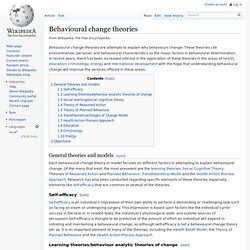

Sedona-Method-Free.
Sodona method. Applying the 80/20 Rule At Work. Photo: andhij Trying to get more done at work?

With distractions, emergencies and low-value busywork eating up a large part of your day, it can be a struggle. Most employees respond by working harder, which usually involves longer hours, tighter deadlines and a lot of beating yourself up for not getting more accomplished. We’ve got nothing against hard work: often the only way to meet your goals is to knuckle down and handle things yourself. However, we all know the expression “work smarter, not harder” – yet most of us rely on “work harder” to get us through every situation. Read on to learn what the 80/20 rule at work is and the benefits of applying it. Pare-whato? The key rule of thumb and mind-set to develop is something called the “Pareto principle.”
The Pareto principle states that a little imbalance can actually benefit us. The core of your work The most important use of the 80/20 rule is defining the “core” of your job. Knowing what to let slide The most results, the least time. The 7 Habits in 3 Minutes : Video. Neural basis of alertness and cognitive performance impairments during sleepiness. I. Effects of 24 h of sleep deprivation on waking human regional brain activity - Thomas - 2008 - Journal of Sleep Research. Self-Esteem Worksheets, Handouts, and Cognitive Behavioural Therapy Resources. The cognitive-behavioural treatment of low self-esteem in psychotic patients: a pilot study. Abstract Low self esteem in individuals with a psychotic disorder is common and may be related to poorer clinical outcomes.

However, there has been little research on devising treatment methods to improve self-esteem either generally or in psychotic patients in particular. The aims of this study were to evaluate the efficacy of a simple cognitive behavioural intervention to improve self esteem in psychotic patients who scored poorly on a self-esteem measure. This pilot study was a randomised control trial with a convenience sample of chronic psychotic inpatients. The cognitive behavioural self-esteem intervention, as an adjunct to treatment as usual (TAU), was compared to TAU alone in patients with psychosis. Keywords. Login.seam?ERIGHTS_TARGET=http%3A%2F%2Fpsycnet.apa.
Login.seam?ERIGHTS_TARGET=http%3A%2F%2Fpsycnet.apa. Occupational Stress: A Handbook. Hart: Effect of sleep deprivation on first-year residents... The relation between work–family balance and quality of life. Abstract We examined the relation between work–family balance and quality of life among professionals employed in public accounting.

Three components of work–family balance were assessed: time balance (equal time devoted to work and family), involvement balance (equal involvement in work and family), and satisfaction balance (equal satisfaction with work and family). For individuals who invested substantial time in their combined work and family roles, those who spent more time on family than work experienced a higher quality of life than balanced individuals who, in turn, experienced a higher quality of life than those who spent more time on work than family.
We observed similar findings for involvement and satisfaction. Sleep Deprivation and Clinical Performance. Neural basis of alertness and cognitive performance impairments during sleepiness. I. Effects of 24 h of sleep deprivation on waking human regional brain activity - Thomas - 2008 - Journal of Sleep Research. PsycNET - Display Record. Self-Efficacy and Health Behaviours. Change anything: Getting personal with performance improvement. This post is by David Maxfield, vice president of research at VitalSmarts and co-author of “Influencer: The Power to Change Anything.”

This April, he released “Change Anything: The New Science of Personal Success.” Are your direct reports in need of a career makeover? Do you ask them to step it up in every single performance review? Does there seem to be a disconnect between an employee wanting to improve and his or her ability to actually make it happen? If so, you’re not alone. While conducting research for our new book, “Change Anything: The New Science of Personal Success,” we found that 70% of employees who were aware that their manager was unhappy with their performance couldn’t tell you what they were doing wrong or how they were going to change. The Center for Nonviolent Communication. Nonviolent Communication (NVC) is sometimes referred to as compassionate communication.

Its purpose is to: create human connections that empower compassionate giving and receivingcreate governmental and corporate structures that support compassionate giving and receiving. NVC involves both communication skills that foster compassionate relating and consciousness of the interdependence of our well being and using power with others to work together to meet the needs of all concerned. This approach to communication emphasizes compassion as the motivation for action rather than fear, guilt, shame, blame, coercion, threat or justification for punishment. In other words, it is about getting what you want for reasons you will not regret later. Nonviolent Communication skills will assist you in dealing with major blocks to communication such as demands, diagnoses and blaming. Behavioural change theories. Behavioural change theories are attempts to explain why behaviours change.

These theories cite environmental, personal, and behavioural characteristics as the major factors in behavioural determination. In recent years, there has been increased interest in the application of these theories in the areas of health, education, criminology, energy and international development with the hope that understanding behavioural change will improve the services offered in these areas.
General theories and models[edit] Self-efficacy[edit] Self-efficacy is an individual's impression of their own ability to perform a demanding or challenging task such as facing an exam or undergoing surgery. Learning theories/behaviour analytic theories of change[edit] Social learning/social cognitive theory[edit] According to the social learning theory, which is also known as the social cognitive theory, behavioural change is determined by environmental, personal, and behavioural elements.